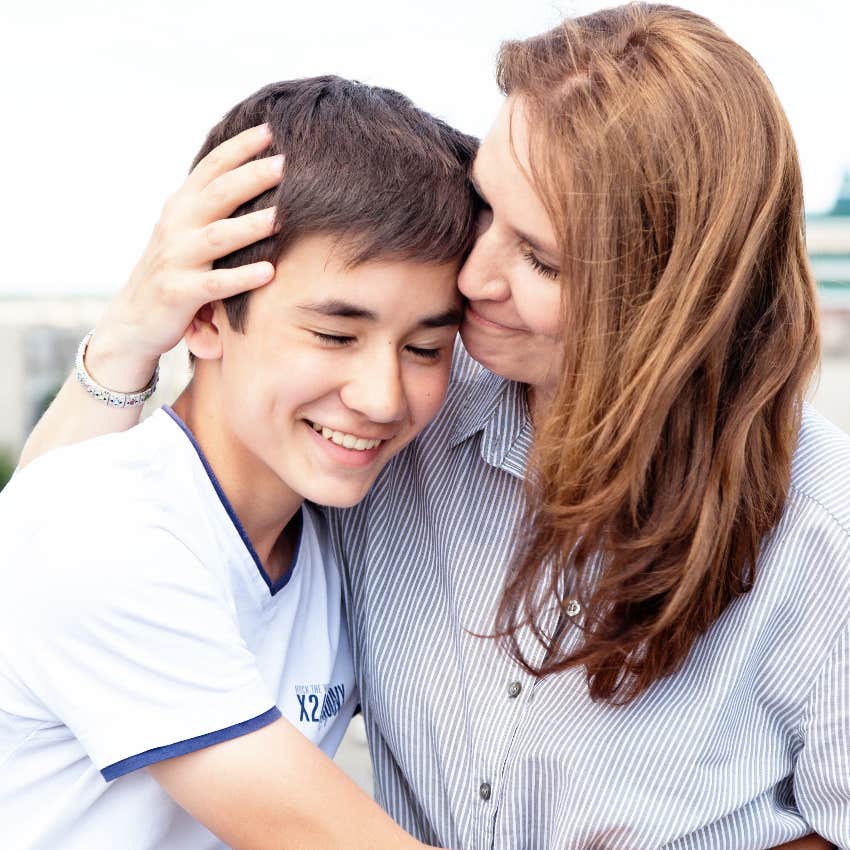Mom Asks If It’s ‘Normal’ To Grieve Her Children Growing Up — ‘I Am Having A Hard Time’
Although only one of her kids is preparing to graduate, she feels like they are all moving away from her.
 shurkin_son | Shutterstock
shurkin_son | Shutterstock It’s not always easy to accept that your children are growing up and moving on with their adult lives. After you’ve poured so much into them, it can be hard to watch them walk away and become their own people. It can be even more difficult to accept that you are now an empty nester.
One mom found herself struggling with this a bit earlier than most and wrote to an advice column for help.
The mom asked if it is 'normal' to grieve her children growing up.
The heartbroken mother coming to terms with the fact that her children will soon be adults wrote into The New York Post’s advice column, “Dear Abby,” for reassurance.
“I had my four children by the time I was 24,” the Tennessee-based mom shared. “My oldest is a senior, while my others are a sophomore, eighth grader, and a seventh grader.”
 Chay_Tee | Shutterstock
Chay_Tee | Shutterstock
“I feel, at times, that I go through a grieving process more now than ever as they are getting older and time is racing so incredibly fast,” she admitted, adding that her oldest daughter will soon be leaving to join the military.
The mom questioned if what she was experiencing was typical for parents.
“Is it normal to feel sadness and grief over your children growing up, knowing they are going to be gone in a few years?” she asked. "Does the emotional part of it ever get easier?"
A part of this mom’s problem likely stems from the fact that she found her identity in being a mom.
It is common for parents, particularly moms, to define their identity through parenthood and unintentionally lose their sense of self and individuality.
“I became a mom at such a young age that it’s all I have ever known and dedicated my life to (besides being a wife and health care worker),” she explained.
“I pride myself on being the best I can be as a mother and provider, and I am having a hard time — especially with my oldest — knowing that I have to let go."
 Dragana Gordic | Shutterstock
Dragana Gordic | Shutterstock
The mom's complicated feelings about her children growing up are normal, to a certain extent.
“People experience ‘empty nest syndrome’ to varying degrees,” Abby responded. “You are a successful parent, but you are also more than that.”
“You have raised your daughter to (young) adulthood and prepared her for independence. That was your job,” she explained. “She is not dying, you are not losing her and she isn’t ‘disappearing over a sand dune.’”
Abby encouraged the mom to do something just for her.
“Dry your tears,” Abby wrote. “Be proud of yourself. Be proud of her. Now that your children are older, explore activities that will enrich your own life. You have earned it.”
Empty nest syndrome is a real thing.
While “empty nest syndrome” might sound like something a distraught parent came up with to describe their feelings of loss after their kids moved out, it can actually cause real mental health issues.
 Olezzo | Shutterstock
Olezzo | Shutterstock
According to PsychCentral, “Empty nest syndrome refers to the feelings of sadness, anxiety, and loss of purpose that some parents and caregivers feel when their grown children move out of the family home.”
Not all emotions that come with empty nest syndrome are bad, though. PsychCentral said that many describe it as a “bittersweet” feeling that also comes with “relief and excitement about a new life chapter.”
While this mom is only feeling the negative side of empty nest syndrome right now, it is a spectrum of emotions, and she is sure to feel all of them, including immense pride in her amazing kids.
Mary-Faith Martinez is a writer with a bachelor’s degree in English and Journalism who covers news, psychology, lifestyle, and human interest topics.

